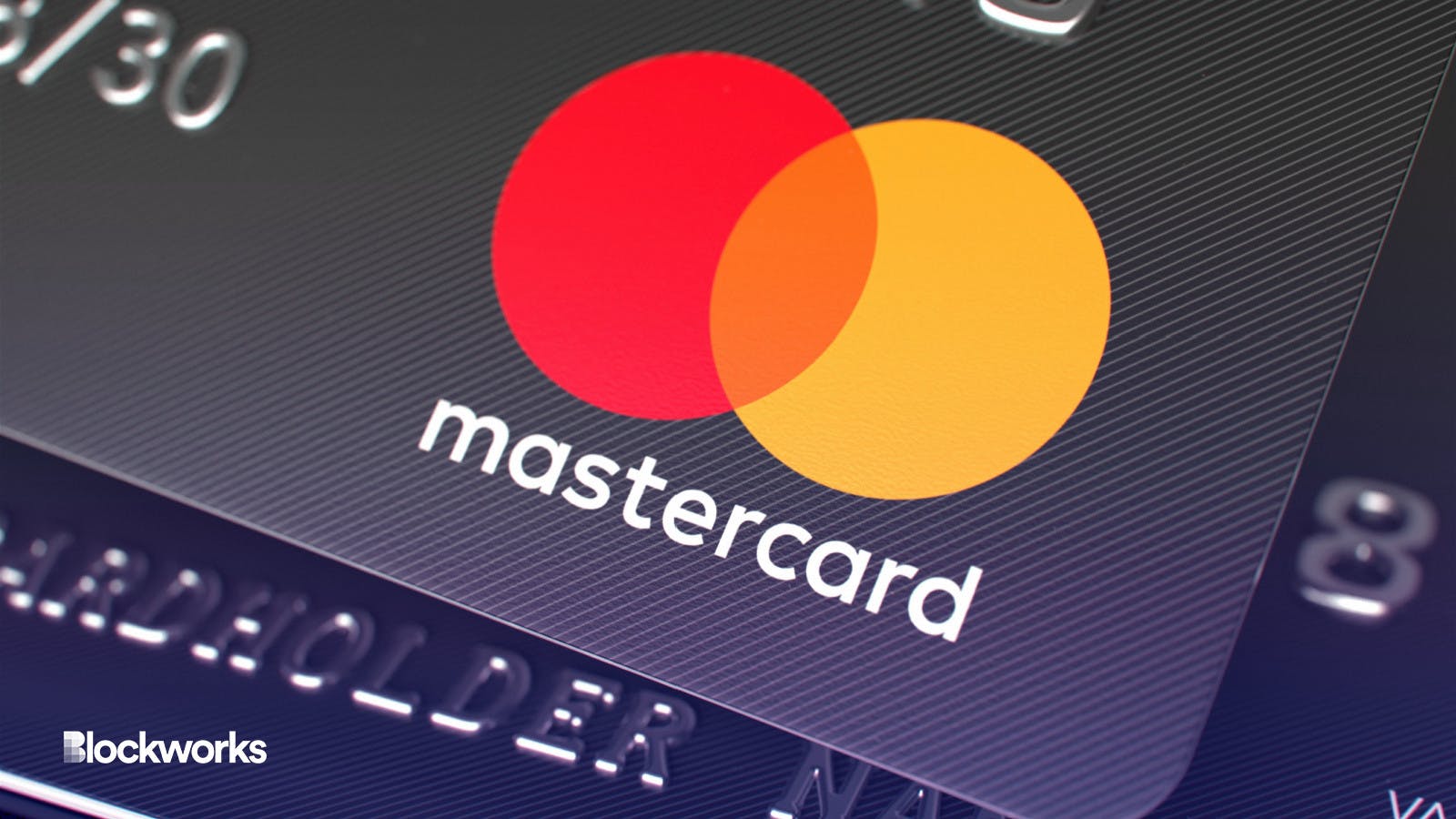Web3 Startup Aims For Mastercard Purchases Via Ethereum Wallets
Web3 startup Immersve is preparing a new Mastercard-powered product for Ethereum users across Australia and New Zealand

Shutterstock.com/hodim, modified by Blockworks
Web3 startup Immersve has teamed up with Mastercard to eventually allow New Zealand and Australia-based customers to make purchases directly from their Ethereum crypto wallets.
Using the upcoming Immersve-branded Mastercard, local users will be able to pay anywhere Mastercard is accepted while tracking transactions via linked Ethereum addresses.
As part of the move, Auckland-based Immersve said it is partnering with an undisclosed third-party settlement provider where customers will use the stablecoin USDC for all purchases, according to a Tuesday statement.
USDC will then be immediately converted to fiat and settled on Mastercard’s network. Know-your-customer and anti-money-laundering checks, online fraud detection and blockchain analytics will also be handled via Mastercard’s Identity Services and compliance firm CipherTrace’s tech stack.
By leveraging its APIs and smart contracts, the firm said it will allow dApps and exchanges to transact via its “Immersve Payment Protocol,” as stated in its whitepaper.
Users’ digital assets will also not be required to be held as collateral by a third party, meaning they would be in “complete control,” the firm said.
Immserve’s Mastercard product pegs Ethereum identification
Both Mastercard and Visa have made concerted efforts to keep up with the crypto space Down Under. They’ve each partnered with several Australian crypto exchanges, allowing customers to make purchases directly from those platforms.
In Immersve’s case, it’s hoping to keep the Web3 ethos when it comes to identification of accounts. Ownership is said to be authenticated through Ethereum’s “Sign-In with Ethereum” functionality, which is part of improvement proposal ERC-4361 still under review.
The “Sign-In with Ethereum” option aims to provide a self-custodial alternative to centralized identity providers and improve interoperability with the non-blockchain world, essentially allowing for verification with third-party, off-chain services by signing transactions.
Immersve did not immediately return Blockwork’s request for comment.
Claimed benefits of bridging Web2 and Web3 in this way include increased data privacy, greater efficiency, increased security for transactions and greater user control over digital identity.
The product is still in early access with no defined launch date yet given.
Get the news in your inbox. Explore Blockworks newsletters:
- The Breakdown: Decoding crypto and the markets. Daily.
- 0xResearch: Alpha in your inbox. Think like an analyst.






